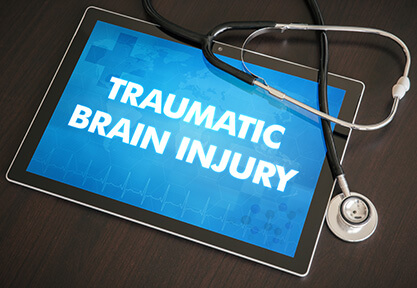I have successfully acted for many hundreds of road accident victims who have sought compensation because they have suffered a traumatic brain injury (TBI). Such cases can be very difficult and challenging, even for the most experienced brain injury lawyer. I explain the top 3 challenges with TBI cases and how I deal with these to get the best results for my clients.
1. The consequences of a TBI, even if the injury is a ‘mild’ one (a misnomer if ever there was one), can be dire for accident victims and their family and friends.
Classic symptoms of TBI include memory loss, shortened attention spans, reduced concentration, impulsivity, inflexible thinking, repetitiveness, wild mood swings, disinhibition and anti-social behaviour, mental fatigue, impaired sense of smell and taste, hypersensitivity to bright light, headaches, and fatigue (especially mental fatigue).
To compound these deleterious symptoms is the fact that many TBI sufferers lack insight into their own untoward behaviour and reduced level of cognitive functioning. This can be extremely exasperating for those around them and their lawyers.
In my experience clients with a TBI are often very unreliable (missing medical and other appointments), stubborn, inflexible, repetitive, disinhibited and verbose. Dealing with such accident victims requires a great deal of patience and understanding, and above all else, empathy. After all, it’s not their fault.
2. TBI is frequently overlooked or mis-diagnosed by the medicos.
Often there is no mention of brain injury, or even a head injury, in the ambulance or hospital records. Admitting doctors reasonably concentrate on the obvious and possibly life threatening injuries like broken limbs and bleeding lacerations, and don’t have the time or possibly the expertise to identify a TBI. Patients are often discharged without the patients themselves realising that in addition to other more obvious injuries they also have a TBI.
The horrid consequences of a TBI may not actually manifest themselves for weeks or months as the focus is on recovering from the more obvious injuries. However gradually those close to the accident victim start to notice the unpleasant changes in personality, stamina, cognition and behaviour. This causes strain on relationships as the sufferer becomes increasingly moody, aggressive and generally difficult to get along with, all of which are compounded by the accident victim’s lack of insight.
Accident victims with TBI risk becoming disconnected from their family and friends. They generally can’t cope with a return to work even though their other more obvious injuries have subsided. Jobs are lost. Financial strain adds to their misery. Busy GPs lack the time or patience to look into the possibility of a TBI to explain their patient’s changed behaviour and be inclined to simply put it down to psychological factors. It can be a nightmare. As a consequence rehabilitation is often denied, or is provided too late to be effective.
An experienced brain injury lawyer who understands TBI will know the viscous circle that a TBI can cause, and explain the types of doctors and assessments that the injured person needs for the brain injury to be properly evaluated.
3. Mild TBI can be difficult to prove
For lawyers inexperienced in dealing with brain damaged clients the steps required to establish a TBI can easily be overlooked. Experienced lawyers know where to look and what to do.
The first step is to closely inspect the ambulance and hospital records for an entry such as an abnormally low Glascow Coma Score, and / or some Post-Traumatic Amnesia (PTA), and of course the results of brain CT and MRI scans.
However that’s no where near enough. What’s also required is to obtain details of the difference between your client’s pre-morbid (pre-accident) and post-morbid level of cognitive functioning and personality. Subsequent neuro-psychometric assessment will be an unreliable measure of TBI unless the assessor has this information, otherwise there’s no reliable measure of the difference between ‘before and after’ cognitive performance.
The accident victim’s lawyer must carefully interview and take ‘before and after’ statements from individuals who have observed both, plus closely review all of the individual’s relevant pre-accident documents such as academic records, work appraisals etc.
In the case of infants a face-to-face meeting with the child’s teachers may be indicated, as post-accident school reports can be notoriously overly optimistic so as not to demoralise the child and parents.
All of this work is very time-consuming. However it must be done if proper compensation is to be paid. TBI accident victims deserve nothing less!
If my above description of a TBI sufferer sounds like you or a loved one and you have not known where to turn until now, contact me by telephone on 1800 251 800 or send me an online enquiry. I will advise you on your claim and treat you with the empathy and respect that you deserve. After all, you have already been through enough.
br
Written by Tom Goudkamp.
Tom Goudkamp is Managing Director of Stacks Goudkamp. He has over 40 years of experience of successfully bringing compensation claims for people who have suffered brain injuries in accidents and in particular in serious motor vehicle accidents. He is one of the few lawyers recommended by the Brain Injury Centre Australia.



